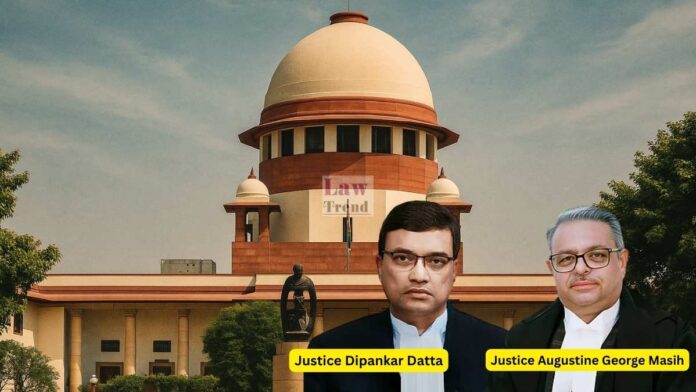The Supreme Court of India, in a judgment dated October 28, 2025, invoked its extraordinary powers under Article 142 of the Constitution to quash the conviction and sentence of a man convicted under Section 6 of the Protection of Children from Sexual Offences (POCSO) Act, 2012, and Section 366 of the Indian Penal Code, 1872.
To Read More Please Subscribe to VIP Membership for Unlimited Access to All the Articles, Download Available Copies of Judgments/Order, Acess to Central/State Bare Acts, Advertisement Free Content, Access to More than 4000 Legal Drafts( Readymade Editable Formats of Suits, Petitions, Writs, Legal Notices, Divorce Petitions, 138 Notices, Bail Applications etc.) in Hindi and English.




